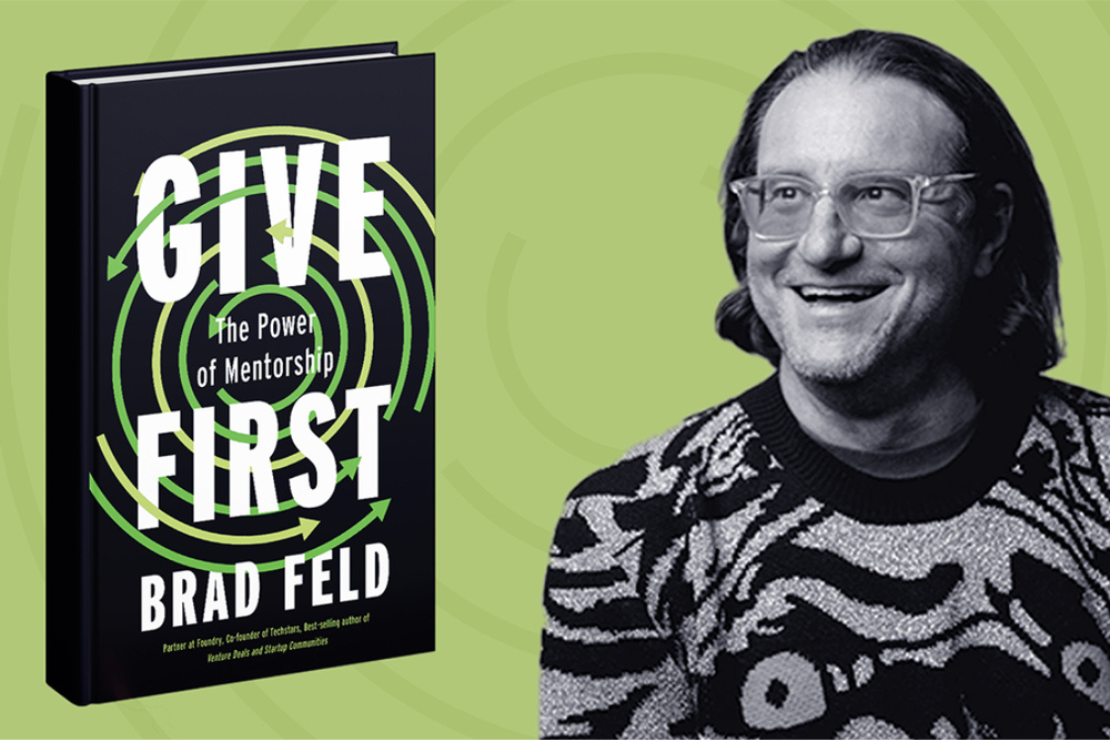Brad Feld's Essential Mentorship Skills
Jul 01, 2025

By Tishin Donkersley, Head of Global Entrepreneur Education
When David Cohen returned as CEO of Techstars, Brad Feld dusted off his manuscript about the power of mentors and the notion of Give First. Brad realized at the time that “Give First,” a core philosophy of Techstars, had transformed into more of a slogan than an integral part of the Techstars culture.
As he reengaged with his words, the meaning and purpose of his book, "Give First: The Power of Mentorship," became more relevant in a shifting political climate where transactional dynamics were becoming more prevalent, contrasting sharply with the “Give First” philosophy of putting energy into a system without knowing what you’ll get back.
“[Give First is] not altruistic. You expect to get something back, you just don't know when, from whom, over what time period, and what consideration, what magnitude. I've had this immense success in many different dimensions of my life using this philosophy, where I enter into a lot of things without defining the transactional characteristics upfront. So I felt like I had some things to say that went beyond Techstars as well as sort of in the context of re-energizing a lot of things that were special historically about Techstars,” Brad said.
The book delves deeper into the ideas presented in the Techstars Mentor Manifesto, which Brad helped create with David, providing explanations and real-world examples.
“One of the things I learned is to be an effective mentor. It's not that you need to follow these 18 rules to be an effective mentor. You need to think about these in this context, in the 18 rules in general, but then incorporate them into your own being in your own context. Some of them are individual strengths that somebody has. Others would be individual weaknesses that somebody has,” Brad explained.
In a recent exclusive Techstars Education event for Techstars Alumni, Brad shared some insight and advice around being a mentor to others and how some of the same skills relate to leadership in one’s company.
Embrace Peer Mentorship: The most effective mentorship evolves into a peer relationship where both mentor and mentee learn from each other. This dynamic is especially powerful when individuals bring different experience sets to the table, allowing them to mutually assist one another.
Be Authentically You: Avoid trying to be "a thing you're not." Instead, focus on being genuine and true to yourself. In the world of entrepreneurship, being authentic is key to being an effective mentor.
Guide, Don't Control: As a mentor, your role is to help the mentee arrive at their own answers, not to provide your own. You must be comfortable with your mentee choosing to disregard your advice or disagreeing with it. Your ultimate job is to support them, even if their decisions lead to setbacks, and then help them learn from those experiences.
Practice Humility: Effective leaders and mentors possess humility. They acknowledge mistakes, are open to changing their perspective based on new information, and take responsibility for their part in outcomes, rather than deflecting blame. This approach fosters a more effective leadership style and a healthier mentorship dynamic. Good mentorship means you're not judging the mentee or taking credit for their successes.
Master Empathetic Listening: Beyond just hearing, active listening in mentorship means truly incorporating what the other person is saying into your own understanding. It involves listening from the mentee's perspective, trying to understand their fears, weaknesses, and concerns, and even the "thing behind the thing they might be saying.”
“If you're a mentor, you have to teleport into the other person's body when you're listening, you have to be listening from their perspective, not from your perspective, and that's really hard. That requires real active energy.”
This deep level of listening enables profound insights and helps guide the mentee toward confronting core issues. An example of a Socratic method that can aid listening is using the "Five Whys" technique, where you repeatedly ask "why" to get to the root cause of a problem.
“I talk about in the book where you try to get to the root cause of a problem by asking the question why. And then when you get an answer, repeating and asking the question why again,” Brad shared.
Now available: Order your copy of Brad Feld's newest book, "Give First: The Power of Mentorship."
About the Author

Tishin Donkersley
Tishin Donkersley is the Head of Global Entrepreneur Education at Techstars.
